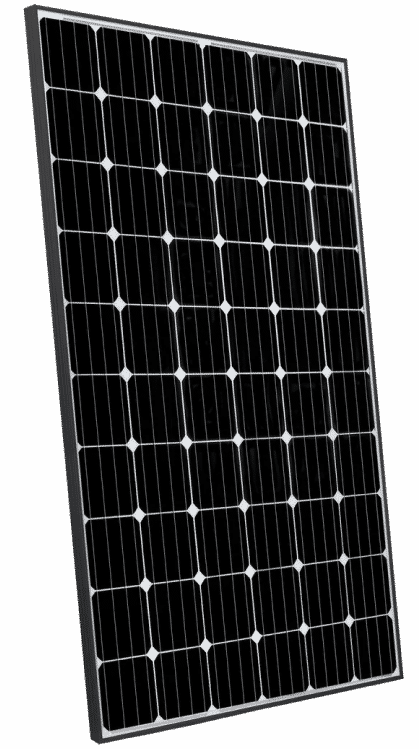Investing in Solar Energy

Investing in Solar Energy
You can save money by investing in solar energy. It all depends on where you live, what incentives are available from your state, and what type of system you choose.
You will need to request a quote for your solar panel installation in order to calculate the expected solar panel ROI. The savings can be significant regardless of your individual circumstances. A 5-kilowatt system can result in a lifetime savings of more than $38,000 in Oregon and $70,000 in Nevada. These are quite different numbers but still represent a remarkable return on investment for solar panels.
Is solar energy expensive?
It can be difficult to decide whether you want to invest in your home, especially if you are not familiar with solar. Many homeowners have questions about how to install solar panels, their cost, and what they will look like. We hear the most common questions: “Is solar power expensive?” “Is it worthwhile?” and “Can it be afforded?” “.
These are crucial questions to ask because solar is likely just one of the many investments you consider in a given year. Another option is to consider a new vehicle, tuition or medical care. How can you tell if solar is too costly or the right price?
What will it cost to go solar?
The average rooftop solar system in the United States has a capacity of 5 kW. At $2.98 per Watt, the current average cost per unit is $2.98 (the lowest price ever). This means that an average solar installation will cost around $14,900. That’s about the same as a new economy sedan. The federal solar Investment Tax Credit (ITC) gives you 30% off solar installation costs, provided you don’t lease. This could bring the average cost down to $10,430.
The price of residential solar is falling, but waiting until it becomes even more affordable could prove to be a bad idea. Consider how long you intend to live in your home, as well as other factors like the expiration or extension of the federal tax credit (currently extended to 2022).
Are solar energy payments taxable?
What is a tax credit?
A tax credit is a reduction of the income tax that you would otherwise have to pay dollar for dollar. A $1,000 federal tax credit can reduce your federal income taxes by $1,000. Although the federal credit is sometimes referred to as ITC or an Investment Tax Credit, this is not the same as the ITC accessible to solar-powered businesses.
What is the federal solar credit?
Federal residential solar energy credit can be claimed as a tax credit on federal income taxes. It is for a certain percentage of the price of a solar PV system. Other types of renewable energy may also be eligible for similar credits, but they are not covered in this guidance.
The system must be in use during the tax year to generate electricity for a residence in the United States. The IRS does not have a clear-cut test for what constitutes “placed into service,” but it has defined the term as completed installation.
Congress approved an extension to the ITC in December 2020. It provides 26% tax credit for systems that were installed between 2020-2022 and 22% for those installed between 2023-2023. Systems installed prior to December 31, 2019, were eligible for a 30% credit. Unless Congress renews the credit, the tax credit will expire in 2024.
There is no limit to the amount you can claim.
Am I eligible to claim the federal solar tax credit?
If you meet all of the following criteria, you may be eligible for this tax credit:
- Between January 1, 2006, and December 31, 2023, your solar PV unit was installed.
- If the electricity generated by the solar PV system does not exceed your home’s electricity use, it can be credited against your home’s primary or secondary residence. A taxpayer can claim a section 25D tax credit from the IRS for purchasing a portion of a community-scale solar project.
- The solar PV system is yours (i.e. you bought it with cash or financing, but you are not leasing the system nor in an arrangement to buy electricity from a system that you don’t own).
- The solar PV system is either new or being used in its first use. Only the original installation of the solar equipment is eligible for credit.
Are tax credits for solar energy refundable?
Are you seeing your employer putting off taxes?
The majority of Americans have their employers automatically hold their taxes from their paychecks. It is much simpler to calculate your taxes at year’s end than having to be your own accountant. The amount that is held back will vary depending on your income, but most people will have hundreds to thousands of dollars in income taxes.
The ITC is here to help. The ITC covers 26 percent of the installation cost, not only the panels but also the solar components like your inverter and racking system. It can also cover a battery backup system such as the Tesla Powerwall, provided that you use renewable energy to charge it. There is no cap on the federal ITC’s dollar amount.
Let’s suppose you have $20,000 solar installation. Now, let’s say you have a solar installation worth $20,000. The federal ITC is a $5,200 tax credit. After all taxes have been calculated, this credit is applied to your total taxes due, reducing your tax owed by $5,000.
You’ll owe $14 605.50 in federal taxes if you earn $85,526 per year (the minimum amount for the fourth federal income tax bracket). This amount will be deducted from your paycheck by your employer. You would only owe $9405.50 if you had your federal ITC valued at $5,200.
You would have to return the $5,200 your employer withheld from you. You will receive the $5,200 in taxes back. This is basically a refund.
What happens if there's still credit?
However, there are situations in which the solar ITC will not give you a full refund. The $5,200 amount that was applied to someone with $3,000 in tax owed will not be returned. Instead, the credit will reduce your amount to $0 and give you $3,000 back. Then, it will roll over to the following year, where you can apply any remaining federal ITC to your taxes.
This is a significant difference to a refundable credit tax credit. A refundable credit would allow you to get $3,000 back if you spent less than $0 on the $5,200. The IRS would then send you a check for $2,200.
You must owe income taxes to maximize your federal solar tax credit returns. The federal solar credit is non-refundable and you will not be able to get any income tax, whether you are receiving social security benefits or from your primary source of income.
Nevada Solar Group discourages people from going solar if they don’t owe federal income tax. Solar has become more affordable in recent years because of the ITC. Your solar installation will be more costly without the tax credit.
Are solar energy stocks a good investment?
According to the Nevada Solar Group, the average solar investment tax credit (ITC) was introduced in 2006. It has led to a 52% annual growth rate. Moreover, increasing demand will likely lead to increased profits for solar companies.
Nevada Solar Group is a convenient way to invest in the sector of solar energy. This company makes solar power equipment, products for end users, and equipment used by solar panel manufacturers, solar installers, or companies specializing in solar cell manufacturing. The fund’s return was -15.59% on a year-to-date basis and 41.10% over a three-year period.
How does solar energy save money?
You might be skeptical when you look at the initial cost of solar power. Solar panels are a great investment, and they can pay for themselves over time. The environmental benefits of solar energy are well worth the effort. Nevada Solar Group is passionate to educate you about renewable energy. We’ve compiled a list of three ways that solar energy can save you money. Visit our website to get a free quote if you are interested in switching to solar power.
Reduce or eliminate your electric bill
Your average energy consumption and how many panels you have available for your home can impact the cost of your electricity bill. The cost of electricity is the largest monthly expense for American households. Years of not paying for electricity will quickly pay off the initial installation costs. Even if your goal is to become energy independent, it’s possible to save money and only use your local grid when you are in need. It’s easier than ever to get your electricity bill under control with the advancements in batteries and backup generators.
Tax incentives
Any commercial or residential property owner who invests into their own solar power system may be eligible for tax incentives from the U.S. Government and some state governments. The incentive was once as high as 26%, but it will drop to 22% by 2020. These incentives are intended to offset the initial cost for solar energy and make it more affordable for homeowners to adopt solar energy.
A smart investment
For many reasons, solar energy is a good investment. Solar panels can increase the equity of your home, particularly in states that support renewable energy. You can also invest in the rapidly growing solar industry and support local solar companies like Nevada Solar Group. While solar has become more affordable over the past few years, the cost of nuclear energy remains high. Newer, better technology is constantly being developed in the solar industry. Solar panels can last a long time and don’t need much maintenance. Solar panels will last for many years if you take care of them. You might encourage your neighbors to switch to solar energy, which can help contribute to a better future for the planet.
What solar energy companies to invest in?
Many people and businesses want to reduce their carbon footprints. Solar energy is becoming an increasingly popular option to oil and natural gas. Since 2014, the cost of solar panels fell 70%. It is expected that more than one-seventh of homes will have rooftop panels by 2030. The U.S. government will also expand its solar energy plans.
Solar energy is becoming more popular in America and all over the globe. It’s not surprising that solar stocks have become a popular investment. These stocks offer investors long-term opportunities, as the sector of renewable energy is expected to grow rapidly in the future. While solar energy stocks are volatile as the industry is still expanding, they are still a popular investment option for many investors as the country transitions from fossil fuels towards renewable resources.
You can reduce your electric bill or eliminate it entirely, offset your carbon footprint, increase the value of your home, and be completely or partially energy independent by switching to solar energy. Nevada solar Group will make your transition to solar power smooth and easy. Our licensed solar technicians will install a lasting solar system. Nevada Solar Group is the right choice if you are looking to switch to solar energy. For a free quote, call or visit our website!

Contact Us For A Free Solar Quote
First name is required
Last name is required
Email is required
Phone is required
Please enter a valid property address
Property address is required
Schedule Your Appointment
ATTACH YOUR UTILITY BILL (optional)
Some information is missing or is incorrect, please fix the issues above and resubmit.
Thank you for your request
Your appointment has been added to our calendar.
The consultation will be online or over the phone. Please prepare a copy of your electric bill or energy usage history for your consultant to give you the most accurate proposal.